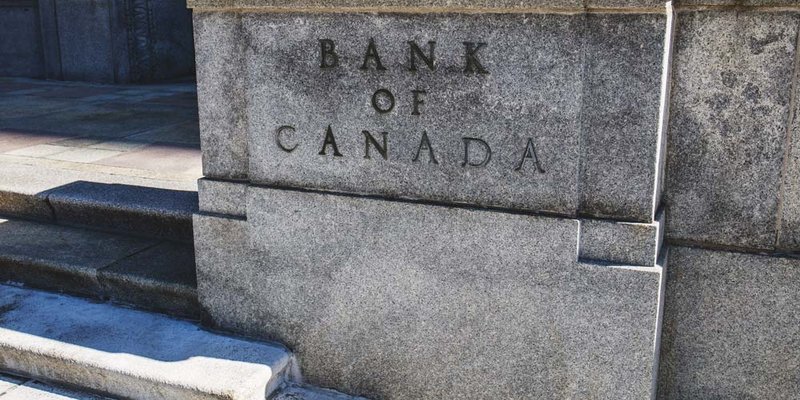
If you are not redirected within 30 seconds, please click here to continue.
Samedi: 10h – 16h HAE

If you are not redirected within 30 seconds, please click here to continue.
If you are not redirected within 30 seconds, please click here to continue.
Bank of Canada Outlook: Rates Likely to Hold Steady

Table of Contents
This week, market watchers are waiting to hear what the Bank of Canada will do when it comes to interest rates. The announcement due on Wednesday will be closely watched because if the BoC does raise rates it would be the sixth time in less than two years and the first time in 2019. That would signal that the Bank’s confident the economy can manage more expensive borrowing rates. Currently, the overnight benchmark rate is 1.75%.
Economic headwinds
Much weaker than expected GDP data out last week from Statistics Canada could be the main reason the BoC holds rates for the second time this year. The data shows that Canada’s economy practically ground to a halt in the fourth quarter of 2018. Statistics Canada reports, the country's GDP grew by just 0.1% in the fourth quarter, for an annualized pace of 0.4%. This number would not have been as bad if experts had been expecting it. But the expectation from economists had been that Canada’s economy grew by 1% in the last quarter. This slower number also indicates a slowdown in business investment.
This news comes only weeks after weaker than expected inflation data from Statistics Canada, as well. The inflation rate was 1.4% in January, which is the weakest growth since the fall of 2017. The Bank’s key mandate is to keep inflation near normal, which is closer to 2%. The best way to boost inflation is to slash rates.
Oil prices
Lower oil prices continue to drag Canada’s economy. Canada is a resource-rich nation, and we are particularly affected by the price of oil. US Oil prices, also known as West Texas Intermediate (WTI) and Texas Sweet Light, plummeted in fall. From more than $75 USD a barrel in September to below $43 USD a barrel in December. Prices have recovered slightly trading above $56 US a barrel but still continue to drag Canadian oil and gas stocks.
The bright spot is the oil prices are showing upward momentum. There is renewed hope after news that OPEC has cut output. There is also news that the world’s two biggest economies the U.S. and China, are closer to ending a tariff war that was started by the U.S. Trump Administration.
Household debt
The Bank of Canada remains concerned by the level of personal debt Canadians have taken on and how increased borrowing costs would affect them. BoC Senior Deputy Governor Carolyn Wilkins said last week that “Canada’s central bank is considering the effect that higher interest rates would have on the country’s highly indebted populace as it ponders whether to raise rates.” She remains concerned with how highly indebted Canadians would handle any rate increase.
The fears are legitimate.
A recent Ipsos poll conducted by the insolvency firm MNP found in January 2019, a growing number of Canadians are inching closer to insolvency – with the proportion who are $200 or less from being able to pay their bills each month.
Raising even more concern, three in ten now say they don’t earn enough to cover their bills and debt payments. Forty-five percent say they will need to go further into debt over the next year just to pay for their living and family expenses and fewer than four in 10 say they’re confident they could cope financially with an unexpected or life-changing event. A rate hike for this large segment of the Canadian population would mean financial trouble.
What to expect?
The announcement is due Wednesday, March 6th at 10:00 AM. Cooling GDP, lower oil prices, and household debt have analysts expecting the BoC to hold rates at 1.75%.
This is great news for homeowners carrying a variable rate mortgage. If the BoC holds the rate, the commercial banks will likely hold prime rates too, keeping the cost of borrowing down. In the meantime, anyone worried about their own debt situation should make changes to their spending now so they manage any rate hike when it comes.
Get money-saving tips in your inbox.
Stay on top of personal finance tips from our money experts!










